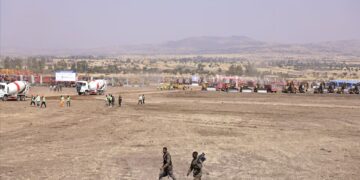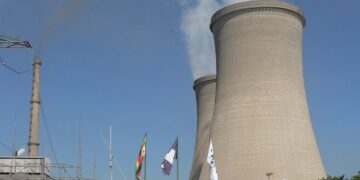By Emmanuel Nduka
A South African court has dealt a major blow to French energy giant TotalEnergies, halting its plans for offshore oil exploration along the Cape coast over concerns that the project failed to meet key environmental and socio-economic requirements.
On Wednesday, the judge annulled the environmental authorisations earlier granted to TotalEnergies and its joint venture partner, Shell, to explore a 10,000 km² offshore block. In his ruling, the judge said the government’s approval process was flawed, as it did not properly assess the potential risks of oil spills, the long-term effects of climate change, and the socio-economic impact on fishing and coastal communities.
The court’s decision followed a legal challenge by two environmental organisations, which argued that the environmental review of the project was inadequate. They said local livelihoods, biodiversity, and marine ecosystems were at risk if the exploration was allowed to go ahead without a thorough impact assessment.
The ruling highlights the growing tension in South Africa between the urgent need for new energy sources and the equally pressing demands of climate protection. Proponents of offshore drilling argue that tapping into potential oil and gas reserves is vital for energy security, job creation, and economic growth, especially as South Africa battles chronic power shortages and a sluggish economy.
But environmentalists counter that new fossil fuel projects undermine global efforts to transition to cleaner energy. They warn that South Africa, already vulnerable to climate shocks like droughts and floods, cannot afford to deepen its dependence on oil and gas. For coastal communities, the stakes are even more immediate, from the threat of oil spills to disruptions in fishing grounds that sustain thousands of livelihoods.
Although the ruling blocks the permit for now, the court left room for a revised application. TotalEnergies and Shell may reapply, but only after conducting more comprehensive studies on environmental risks, climate implications, and community disruptions.
The case adds to a growing wave of legal battles in South Africa, where activists and communities are increasingly turning to the courts to challenge oil and gas projects along the country’s fragile coastline.



































